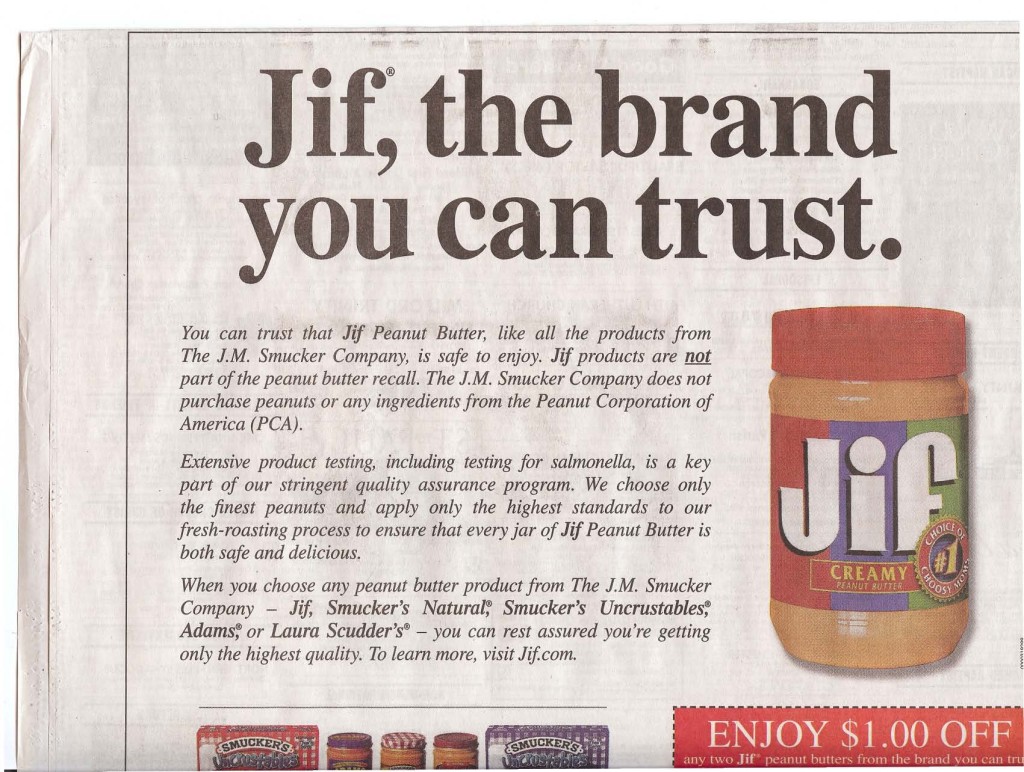This past February, I turned on the television to see a cruise line commercial showcasing several of the liner’s new features. All in all, the ad was fine – except for one thing: I could only think about the ship drifting through the Gulf of Mexico without running water and little food.
The Carnival Triumph debacle had happened just weeks before I saw the ad, so I still had the phrase “A floating hell” at the top of my mind.
My immediate consumer reaction: “Not a chance.”
But the real problem was that the commercial had been for Royal Caribbean. Not Carnival.
Now, I should say this: I am neither a cruise industry expert, nor have I ever taken a cruise. That said, I do know the industry is a highly competitive one and extremely nuanced between competitors.
It wasn’t fair for me to hold Carnival’s faux pas against Royal Caribbean, but it turns out I wasn’t alone – making the implications of such a situation incredibly important for marketers.
Here’s the problem: one industry player (Carnival) becomes a “Floating Hell,” and the average consumer reacts by applying that image to the entire industry.
Immediately after the accident, The Harris Poll surveyed 2,230 U.S. adults and found the following results:
Carnival’s perceived quality score dropped 18% (from 6.4 to 5.25).
Royal Caribbean’s had also dropped 4% (7.2 to 6.93).
Carnival’s Purchase Intent score dropped 13%.
Royal Caribbean’s also dropped 5%.
In the eyes of the average consumer, the entire industry was tainted because of the actions of one. Here’s more:
Over half of Americans (53%) were less likely to take a cruise now than they had been a year ago.
57% of Americans agreed that air travel is much more reliable than taking a cruise.
50% agreed that air travel was much safer than taking a cruise.
Among those who had never cruised before, only 25% of respondents characterized cruises as “worry free.”
The next poll – taken in May – showed that ratings only continued to drop.
Which brings us to the question of how an innocent industry player (Royal Caribbean, in this case) should react so that its brand isn’t harmed through association?
Here are a few similar historical instances that marketers can learn from.
SPEAK UP FOR YOURSELF: PEANUT BUTTER
In 2009, a Salmonella outbreak rocked the peanut butter industry. It turned out that The Peanut Corporation of America, a major producer of peanut butter and peanut paste, had distributed a tainted product throughout the country. And while the recall was focused mainly on cookies, crackers and other products made with peanut paste (not peanut butter), major peanut butter brands – such as Jif and Peter Pan – saw their sales plummet by 20% midway through the outbreak.
So, how did these brands respond? With explicit ads (that included coupons!) and messages on their websites aimed at assuring that they were safe. They even had peanut farmers show up in Grand Central Station to assuage consumer fears. But, at its core, the response was one of saying “Our ingredients are different.”
However, as Gene Grabowski, a senior vice president for Levick Strategic Communications noted, these types of tactics have the potential of drawing more attention to the outbreak and causing consumers to associate the brand with the problem. As he said, “That’s a marketing tactic that you want to hold back until you absolutely need it.”
The result, though? According to a report by the USDA, sales returned to normal several months later and the total volume of peanuts processed during the 08/09 marketing year increased from the previous.

KEEP CALM AND CARRY ON: AIR TRAVEL
“Safety should not be a competitive issue.”
That’s what the International Air Transport Association says in its report, Dealing with the News Media After an Aviation Accident: Best Practices in the Age of Social Media. And, judging by the responses of rival airlines to the Asiana Airline crash, that seems to be the case in the airline industry. While Southwest and United offered good wishes to the airline, Delta did not even acknowledge the incident.
Which is just as well, it seems. The airline industry – as a whole – is the safest it’s ever been, and people know it. So while there may be momentary dips in confidence, long-term impact on consumers are kept minimal by not calling a lot of attention to an incident (at least on Twitter).
KEEP CALM, BUT SPEAK UP: ROYAL CARIBBEAN
So, what did Royal Caribbean do in response to the Carnival accident? Judging by its Twitter and Facebook feeds, it kept its distance for the most part.
But you can see it approached the incident indirectly. For one, it bumped up its number of daily tweets and made some subtle references to the excellence of Royal Caribbean and the cruising industry in general:
February 11 – A letter written by CEO, Adam Goldstein, about “the path to success.”
February 12 – Announced a new pro-cruise industry initiative called Cruise Forward.
February 13 – Announced its inclusion on a Condé Nast Traveler spa poll list.
February 15 – Announced a live Q&A with its CEO about the Cruising Industry.
Did the strategy work? As the Harris Poll indicated, Royal Caribbean (along with the rest of the cruise industry) still experienced a drop in consumer perceptions, but perhaps the steps they took minimized the effects of the Triumph incident.
So, here a few things a marketer can remember when a bad apple in your industry threatens to ruin the whole bunch.
1. Directly addressing an incident has the potential to draw your brand into the incident. It’s probably best never to have “salmonella” and “your brand” in the same sentence.
2. Building a strong industry brand can shield the fallout for individual brands. When consumers view an incident as rare or isolated, they are less likely to hold a competitor’s actions against you.
3. Stay positive. By focusing on the things that are going right with your company, you can be the calm in a storm of negativity.
4. Always, always, always remember that next time, you may be the bad apple.
While your industry’s competition may be fierce, strengthening your own brand is the best defense for when, not if, your industry’s next crisis occurs.
 Tom Allin is Associate Account Executive/Planner at The Ramey Agency.
Tom Allin is Associate Account Executive/Planner at The Ramey Agency.


